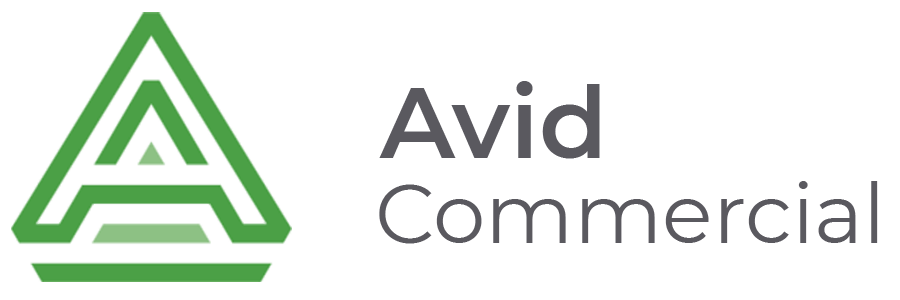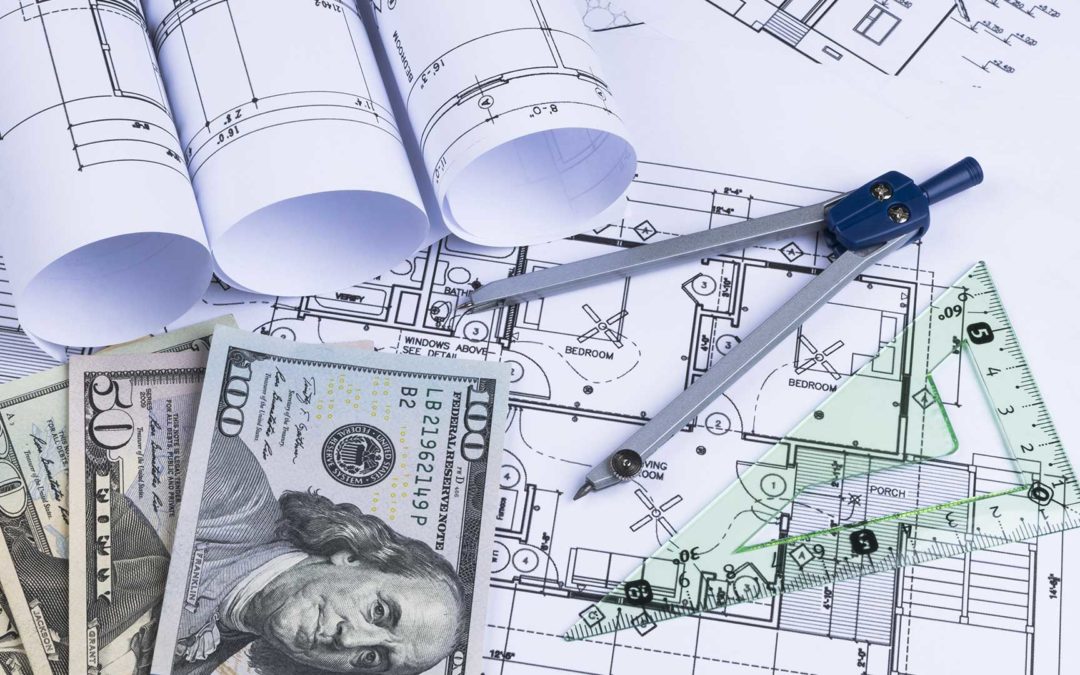What are Owner-Occupied Commercial Mortgage Loans
Owner-occupied commercial loans are for borrowers who reside in at least 51% of a property’s leasable space. The remaining space is occupied by the borrower’s business and/or residential tenants. The borrower’s business is underwritten to ensure that the cash-flow can repay the loan. To process loans, lenders will ask for documentation from the last three years of tax returns, a business debt schedule, financial statements, personal tax returns, and credit report.
Owner-Occupied Commercial Mortgage Loans
There are three basic types of commercial loans. Each type of loan is designed to assist different demographics by providing unique opportunities. Examples of owner-occupied commercial properties can include apartment buildings, hotels/motels, offices, retail buildings, industrial/warehouse spaces, and medical/healthcare facilities.
- Conventional Business Mortgage Loans – Banks, credit unions, and other financial institutions provide conventional loans that require collateral, which could be any commercial property. Conventional loans have a maximum LTV of 80%. These loans are ideal for inexperienced borrowers, specialty properties, small loan balances, and properties that require personal guarantees.
- Small Business Administration (SBA) Loans – The Small Business Administration is an independent agency that helps small business owners strengthen their position in the economy. With higher LTVs, 85%, and lower DSCRs than conventional loans, SBA Loans provide funds from private-sector lenders. This type of loan offers advantages to women and minority groups.
- United States Department of Agriculture (USDA) Loans – This type of loan creates opportunities for residents of rural communities. This agreement is a private-public partnership achieved by expanding the lending capabilities of private lenders. LTVs are highest for this loan at an average of 90%. Borrowers can use loan funds to pay for machinery, real estate, equipment, and some types of debt refinancing.
Each type of commercial loan offers different advantages, depending on the borrower. For example, USDA loans provide no down payment to qualified borrowers in rural areas with low income. Borrowers with strong credit scores and more starting capital can benefit from conventional business loans if they are looking for a more substantial loan amount.
Commercial Mortgage Loan Rates for 2018
Comparing average commercial loan rates for owner-occupied properties can help clarify which type of loan is most suitable for your needs. It’s necessary to take your credit score, interest rates, and down payment into consideration as well as many other significant factors. Below you will find a summary of each type of commercial mortgage loan, the average rates for 2018, and who the loan benefits most.
Conventional Business Mortgage Loan
Conventional loans usually offer a maximum loan amount of 65% to 85% of a property’s loan-to-value ratio (LTV) or the pre-purchase fair market value. There is no maximum loan amount since these commercial business loans are backed up by banks and private lenders, rather than the federal government.
- Maximum Loan Amount – 65% to 85% Loan-to-Value
- Minimum Down Payment – 15% to 35% of the purchase price
- Interest Rates – 4.75% to 6.75%
- Closing Costs – 2% to 5%
- Credit Score – 700+
- Loan Term – 5 to 20 years
- Approval Time – 30 to 45 days
Conventional business mortgage loans have a similar structure to conventional residential mortgages. Banks amortize payments over the entire course of the loan.
How to Qualify for a Business Loan
Qualifications for a conventional business loan are slightly stricter than for loans backed by government-assisted programs. Borrowers will have to meet the following requirements.
- A credit score of 700+
- Debt-Service-Coverage-Ratio: at least 1.25
- Owner-Occupied Property: 51% or more
- 1 or more years in business
The requirements for a business mortgage are somewhat stricter than for other types of loans. However, those who qualify can benefit from the low-interest rates. These loans tend to be permanent, but short-term loans, starting at a five-year period, are possible.
- Who the Loan is for
This loan is ideal for borrowers with excellent credit scores, interested in long-term loans. There’s no limit to the amount of funds that can be borrowed since lenders can decide on an individual basis.
Small Business Association (SBA) 7(a) Loan
This is the most common type of SBA loan that helps borrowers purchase or refinance properties worth up to $5 million. Most of these loans, 65%, were issued to previous business owners, while 35% were issued to new business owners.
- Maximum Loan Amount – 85% to 90% of the purchase price
- Minimum Down Payment – 10% to 15% of the purchase price
- Interest Rates – 5% to 8.75%
- Closing Costs – 2% to 5%
- Credit Score – 680+
- Loan Term – 10 to 25 years
- Approval Time – 60 to 90 days
The SBA 7(a) loan is available for specific types of business. These include medical and dental practices, veterinary clinics, independent pharmacies, attorneys, architects, CPAs, and funeral homes. Commercial interest rates can be either fixed or variable.
- Who the Loan is for
SBA 7(a) loans help businesses that would otherwise not qualify for a bank loan. Typically, a company must fall below a certain revenue threshold to qualify.
Small Business Association (SBA) 504 Loan
This loan is considered to be two loans in one, with no maximum funding limit. Two parties finance the SBA 504 loan. These are a traditional bank and a Certified Development Company (CDC). The bank finances 50% of the purchase price, the CDC 40%, and the borrower the remaining 10%.
- Maximum Loan Amount – up to 90% of the purchase price
- Minimum Down Payment – 10% of the purchase price
- Interest Rates – 3.5% to 5%
- Closing Costs – 2% to 5%
- Credit Score – 680+
- Loan Term – 20 years
- Approval Time – 60 to 90 days
Along with lower fixed commercial interest rates come a few extra qualification requirements.
- The borrower’s business must have an average income of less than $5 million in the previous two years.
- The business may not have a net worth higher than $15 million.
- The loan amount cannot exceed the assets of the owner.
- Finally, business owners are required to create and maintain one job position for every $65,000 of issued funds.
You’ll need to be actively growing your business to qualify for this type of loan. If you want to finance new construction, your business must occupy at least 60% of the available commercial space. You’ll have to show plans to expand to 80% to meet the qualification guidelines.
- Who the Loan is for
With the lowest down payments of any commercial loans, the SBA 504 loan is ideal for growing companies that can’t afford a large down payment. Low commercial interest rates make it the perfect loan for businesses that want to expand their workforces.
United States Department of Agriculture (USDA) Loan
The USDA provides commercial business loans for borrowers in rural areas. Fortunately, about 97% of the country qualifies as a rural area. Many areas outside of major cities will qualify as rural. With no down payment, this loan is an excellent choice for first-time property owners.
- Maximum Loan Amount – varies
- Minimum Down Payment – 0%
- Interest Rates – Annual Mortgage Insurance Premium (MIP) is 0.30%
- Closing Costs – 2% to 5%
- Credit Score – 640+
- Loan Term – 15 or 30 years
- Approval Time – 30 to 45 days
Previously, borrowers with inadequate credit history could still qualify for this type of loan. However, the USDA recently set a credit score requirement of at least 640. To qualify, borrowers must have a meager income relative to their area. Grants are available to individuals over the age of 62.
- Who the Loan is for
This loan is ideal for very low-income borrowers who live in rural areas. It’s often the only choice for borrowers who cannot receive financing elsewhere. This loan is also perfect for those wishing to make renovations and safety improvements.
Conclusion
Owner-occupied commercial business loans are available to borrowers who inhabit at least 51% of their property and meet other qualification requirements. There are several different types of commercial loans that can suit the needs of almost every borrower.
Those with strong credit scores interested in borrowing more substantial amounts of money should consider a conventional business mortgage loan. If your business doesn’t qualify for a bank loan, the SBA 7(a) could be the best choice. For business owners interested in expanding and growing their workforce, an SBA 504 loan is an ideal option with low-interest rates. Another option for low-income borrowers may be a USDA loan. However, you must reside in a rural area and meet low-income standard restrictions.
When decided which commercial loan is right for your business, consider your current financial and credit situation, your business goals, and loan term duration. Making an informed decision from the beginning will put you and your business on the pathway to success.

